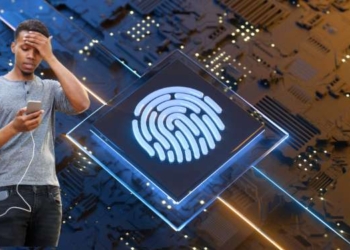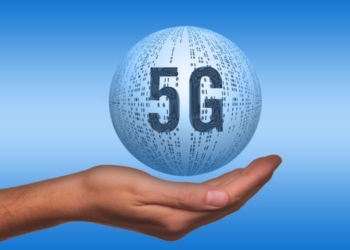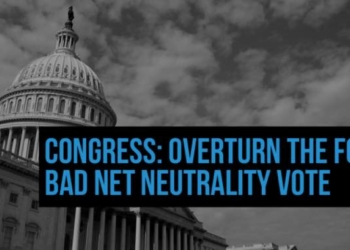Brief Overview: New WEF Report Reveals the Global Elites’ Shocking Plan to Enforce Vaccination. The globalists are proposing that digital IDs could be used to track the unvaccinated. Where this leads is major institutions, including JPMorgan, are predicting that the metaverse represents a multi-trillion-dollar opportunity. It is projected that by 2026, nearly 30% of online users will have adopted the metaverse for activities such as work, shopping, education, and entertainment. Here’s the kicker: the WEF report says digital ID will be “a cornerstone in metaverse identity.” So, imagine needing an ID not just to drive or travel but to log in and interact online. (Click HERE to watch a video on this).
By Michael Nevradakis, Ph.D., The Defender
This article was originally published by The Defender — Children’s Health Defense’s News & Views Website.
As the United Nations, World Economic Forum (WEF), European Union, World Bank and Bill & Melinda Gates Foundation push for a global digital ID, a new WEF report highlights the “pivotal role” a person’s “digital identity” is expected to play in the metaverse.
The WEF’s “Metaverse Identity: Defining the Self in a Blended Reality” report, published last month and written in collaboration with Accenture, a multinational internet technology company, states:
“The metaverse, poised to redefine the internet, intertwines the digital and physical, emphasizing the pivotal role of ‘identity’ in shaping immersive, human-centric experiences.”
According to the foreword to the full WEF report, “The metaverse will act as a conduit to blend the digital world with the physical world and transform how people interact with information, others and their surroundings” and digital ID will be “a cornerstone in metaverse identity.”
The WEF’s March report comes on the heels of last month’s report by the RAND Corporation and the U.K. Defence Science and Technology Laboratory, which states that “future metaverses may reach such a sophistication level that they ‘come to function almost like new countries.’”
The RAND report predicts the Internet of Bodies ecosystem, where humans and machines are essentially merged, may result in the development of the “Internet of Brains” sometime between 2035-2050.
An opportunity ‘to control massive amounts of people’
Experts who spoke with The Defender warned that behind the WEF’s stated concern for the security of individuals’ digital identity in the metaverse, are major financial interests — and new privacy-intrusive digital tools.
Seamus Bruner, author of “Controligarchs: Exposing the Billionaire Class, their Secret Deals, and the Globalist Plot to Dominate Your Life,” and director of research at the Government Accountability Institute, told The Defender that, to understand the interests at play behind the WEF’s metaverse report, it’s vital to follow the money.
“The first and most obvious answer is: money,” Bruner said. “Financial institutions like JPMorgan and Bank of America all believe the metaverse has multi-trillion-dollar potential. Goldman Sachs predicted the metaverse could be an $8 trillion opportunity.”
According to a December 2023 Bankless Times report, nearly 30% of online users will use the metaverse “for work, shopping, education, or entertainment by 2026,” while “The global virtual reality market is expanding at a yearly compound rate of 31.8%.”
“When people think of the metaverse, they often think of virtual reality, but that’s only one part of it,” Bruner said. “Augmented Reality will be a major component of future metaverses, but the difference between AR and VR is that the AR headsets actually see the physical world around you,” which poses privacy concerns for users.
“They have cameras that see what you see and microphones that hear what you hear and say. Where will that data go?” Bruner said.
Tim Hinchliffe, the publisher of The Sociable, told The Defender “Who needs facial recognition, geolocation tracking or contact tracing when any government or corporation can literally see what you are doing and where you are going in real time?”
Michael Rectenwald, Ph.D., author of “Google Archipelago: The Digital Gulag and the Simulation of Freedom,” told The Defender:
“The conception is materialist and mechanistic at base, the hallmarks of social engineering. It represents the world as consisting of nothing but manipulable matter, or rather, of digital media mimicking matter.
“It suggests that human beings can be reduced to a material substratum and can be induced to accept a technological reproduction in lieu of reality. Further, it assumes that those who inhabit this simulacrum can be controlled by technocratic means.”
Rectenwald said this “materialist, mechanistic, techno-determinist and reductionist worldview is consistent with the transhumanist belief that humans themselves will soon be succeeded by a new transhuman species, or humanity-plus (h+) — perhaps a genetically- and AI-enhanced cyborg that will outstrip ordinary humans and make the latter virtually obsolete.”
Bruner said the “deeper and more insidious reason” the WEF and its partners are obsessed with virtual realities like the metaverse is the opportunity it presents “to control massive amounts of people — either as a placating tool akin to ‘bread and circuses’ or even as a brainwashing and propaganda tool.”
An ‘enforcement regime’ for vaccination?
The metaverse is part and parcel of the “Great Reset,” Hinchliffe and others said.
“When WEF founder Klaus Schwab officially launched the Great Reset in 2020, he said that the Fourth Industrial Revolution will lead to the fusion of our physical, digital and biological identities,” Hinchliffe said.
“When you combine the Great Reset and the Fourth Industrial Revolution, what you get is transhumanism and the metaverse — the blending of humans and technology in virtual and augmented spaces that dissolve individual and national identities,” he said.
According to Rectenwald, “The metaverse may become a means of compensating for and distracting from the real-world impoverishment created by the enactment of the Great Reset, while serving as an enforcement regime for such matters as vaccination.”
At the WEF’s annual meeting in January, digital ID was proposed as a means of tracking the unvaccinated.
“Thanks to the reduced satisfactions of the ‘real world’ because of the Great Reset, the metaverse may become preferable to non-virtual reality,” Rectenwald said. “And given its governance by the same elites that govern the physical world, the limitations and threats imposed by authorities in the physical world will be doubled in the metaverse.”
“If you are an unelected globalist at the WEF, or if you are a big corporation, then the idea of ruling over countries that exist only in cyberspace becomes very alluring,” Hinchliffe said. “You can invent all the rules and govern without ever having to hold an election,” he added, referring to the RAND Corporation report.
Catherine Austin Fitts, founder and publisher of the Solari Report and former U.S. assistant secretary of Housing and Urban Development, told The Defender, “One of the WEF’s goals is to market the central bankers’ reset … to the general public.”
“Metaverse promotion is part of using online entertainment — such as video games and multi-media combined with mind control — entertainment and subliminal programming — to distract and manipulate the portion of the population that can be captured to escape the real world, part and parcel of lowering cognition and IQs,” Fitts added.
For Bruner, the endgame for proponents of the metaverse is to “build back better” by “digitalizing everything using Fourth Industrial Revolution technologies such as digital IDs, digital currencies, artificial intelligence and virtual realities like the metaverse.”
“Schwab has said that each of these concepts will lead to ‘a fusion of our physical, our digital, and our biological identities,’” Bruner said.
Opting out could ‘negatively influence social mobility in physical worlds’
According to the WEF report, “Given that the metaverse is an extension of and an evolution of today’s internet, it may be assumed that anyone online today can have a metaverse identity. … Digital entities will be an enabling aspect of metaverse identity, facilitating and augmenting digital interactions.”
The report states that metaverse identity includes “representations” of “personal, social and role identity” through “avatars, pseudonyms or other digital expressions,” data that “capture the intricate web of knowledge about individuals generated by metaverse-supporting hardware and software” and traditional forms of identification.
Together, these constitute “digital crumbs that accumulate to form a metaverse identity,” the report adds.
Going beyond digital ID, the “metaverse identity includes data points,” the report states, that also extend “into the intricacies of an individual’s behaviours, actions and choices.”
The report gives an example of such “intricacies:”
“The way an individual speaks — for example, with unique tonal inflexions or cultural idioms — can offer insights into their background and upbringing. Similarly, a person’s distinctive movements, whether it’s the fluidity of their dance or the precision of their basketball shots, tell tales of their experiences and passions. Collectively, these attributes can generate insights and inferred data.”
The metaverse “enables dynamic verification through real-time, inferred data.” For example, an individual’s behaviors, paired with facial scanning, can be used as ongoing age estimation or “‘behavioural credentials,’ effectively making verification an ongoing authentication process based on individual user conduct.”
“Metaverse identity,” in turn, “connects and anchors a person to the physical and virtual world,” the report states, adding that this is “central to the future of the blended world.”
Potential applications of these metaverse identities range from “fashion try-ons” to “health monitoring … by inputting an individual’s daily nutrition and exercise habits into the doppelganger’s simulated environment.”
The report acknowledges that there will be people “who, by choice or circumstance, remain outside the formal bounds of identification” — i.e., consciously opting out of participating in the metaverse — and that this could “negatively influence social mobility in physical worlds, given the reliance economies have on digital platforms.”
When implemented together, digital currency and digital ID “will create a global, interoperable system that allows WEF-allied central banks to track, trace, surveil, and ultimately control how people spend their money, and thus, live their lives,” Bruner said.
According to Rectenwald, the WEF and its corporate partners are interested in “developing and promoting the metaverse particularly to create metaverse identities,” allowing all internet use to be collected in a database “connected to individual users.”
He added:
“In this way, all internet activity of users will become part of their digital identities, which will then be used to connect their online activities with all other activity, including but not limited to their banking, attitudes, beliefs, politics and even their compliance with various ‘health’ measures being rolled out.”
Hinchliffe predicted that “some form of digital ID will be necessary to access the metaverse and to make digital payments,” which is connected to the idea of digital money via the introduction of central bank digital currencies (CBDCs).
Hinchliffe cited a 2021 report by the Bank for International Settlements, which stated, “Identification at some level is … central in the design of CBDCs. This calls for a CBDC that is account-based and ultimately tied to a digital identity.”
‘Internet of Brains’ may ‘connect’ brains to ‘online data networks’ by 2050
According to the RAND Corporation-U.K. Defence report, the metaverse will lead to the creation of “a more interconnected global society emerging via virtual reality.”
There may also be not one, but multiple, metaverses, which may “come to function almost like new countries … that exist in cyberspace rather than in physical locations but have complex economic and political systems that interact with the physical world.”
This “may reduce the importance of national and individual identities and change how societies define and shape their cultural identities,” RAND states.
“If you can’t physically invade a country to establish a New World Order or a One World Government, why not create a digital one that reduces ‘national & individual identities’ and then install a cyber-government of unelected technocrats?” Hinchliffe said.
RAND also suggested the metaverse may include technology that allows users to “store and enforce the rules” they set “about what is allowed to come into their awareness, what takes up their time and what information is shared about their activities.”
“The changing relationships between individual end users and those controlling virtual environments have led some to argue that ‘our sense of physical identity, time and agency will become subject to entirely new paradigms where the gateways to these experiences might be controlled by interests other than citizens,’” the report states.
This may lead to an “internet of bodies” that may also ultimately lead to an “‘internet of brains’, i.e. human brains connected to the internet to facilitate direct brain-to-brain communication and enable access to online data networks,” leading to “the potential emergence of ‘trans-humanism’ within the 2050 timeframe,” according to the report.
The report says those who opt out of such a system may be marginalized:
“Given the direct embedding of technology into human cognitive, physical and psychological functions, substantial levels of human augmentation may ‘[blur] the notions of identity and of what it means to be human’, introducing new normative lenses on humanity and producing new stigma for those not seen as attaining those norms.”
What’s more, “manipulations experienced in a digital environment may influence an individual’s physical or ‘real-world’ behaviours, potentially challenging established sociocultural institutions such as democratic political systems,” the report adds.
Fitts rejected these visions. “From my point of view, the metaverse hypers are the marketing division of what I call the ‘Great Poisoning.’ Best to ignore it and teach children the joys of being healthy and building real wealth,” she said.
“There is perhaps no better description of the metaverse than a painless transhumanist concentration camp, as Aldous Huxley predicted nearly six decades ago,” Bruner said.
ABOUT THE AUTHOR
Michael Nevradakis, Ph.D., based in Athens, Greece, is a senior reporter for The Defender and part of the rotation of hosts for CHD.TV's “Good Morning CHD.”
This article was originally published by The Defender — Children’s Health Defense’s News & Views Website under Creative Commons license CC BY-NC-ND 4.0. Please consider subscribing to The Defender or donating to Children’s Health Defense.















